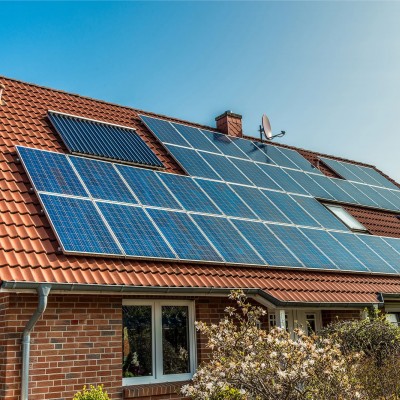Shocking Solar Bill Would Kill Massachusetts Solar Industry

The Massachusetts House passed a solar energy bill (H.3854/S.1979) tonight that will effectively eliminate the Massachusetts solar industry. It is now up to the Senate to suggest an alternate path that will support a vibrant solar economy.
MassSolar strongly opposes the bill passed by the House and is working with legislators in the House and Senate to develop alternative solar policies that would foster the long-term, vibrant growth of solar in the Commonwealth.
House Bill 3854 / Senate Bill 1979
- Lowers net metering rates 75% for existing and new projects
- Targets current and new solar customers with additional charges
- Creates an “SREC availability gap” in Q2 of next year
- Only raises the net metering caps for 3 to 6 months
- Ignores Net Metering Task Force recommendations
- Cuts support for low-income and community solar projects
We’d ask you to contact your state senators first thing on Wednesday morning to let them know that you oppose passage of S.1979 as currently drafted. Your Senators will be voting on this legislation on Wednesday. We can do better. Here is how.
The bill would cut the amount solar customers receive for the solar energy they supply to the grid by over 75%, lowering the net metering rate from an average of $0.18 / kWh to $0.04 / kWh. Solar projects simply do not make economic sense in the Commonwealth at those rates.
Perhaps even more concerning is the fact that this legislation would retroactively lower the net metering credit rates for existing solar energy installations 75% after the first 15 years of operation. Schools, cities and towns, non-profits and businesses will see the value of their investments slashed as a result.
In addition, the legislation would impose a minimum bill on existing and future solar customers whether they install solar on their own roof or buy solar power from a community solar project. So existing solar customers will have the value of their existing investment hurt twice, once by receiving lower rates for the power they produce and then by having to pay higher fees to connect to the grid…all without any justification that these changes are necessary.
The net metering task force issued a report that found that every dollar invested in solar resulted in $2.50 of benefits for the Commonwealth at large. They recommended that the administration conduct a value of solar study to determine the fair and proper compensation for both grid operators and solar owners. Once that value of solar study is completed and appropriate compensation is assigned for both costs and benefits to both grid operators and solar owners, there will be no need for implementing minimum bill charges.
The Acadia Center has conducted a Massachusetts value of solar study that found solar provides approximately 22 to 28 cents / kWh in value to the grid, which far exceeds the current retail net metering rate. So given that both the net metering task force report and the Acadia Center study have determined that solar benefits far outweigh their costs, we recommend continuing the current very successful programs until a full and complete value of solar study can be completed.
The solar industry has had half of their projects put on hold for seven months now since the net metering caps took effect in 171 Massachusetts communities. During that time over 115 MW of solar projects have been added to the wait list, including 12 MW added in the last week alone! At that rate, the proposed 2% net meter cap increase is totally inadequate and will result in solar projects being back on hold as soon as four months from now.
The proposed cap increase is too little, too late. Net metering caps should be lifted enough to meet the administration’s 1,600 MW solar targets and to allow enough time to successfully complete our projects before the expiration of the Federal Investment Tax Credit.
It is time for our legislators to address the larger issue: until the utility business models are changed to align with our citizens’ goals for the Commonwealth, we will continue to sacrifice the benefits of a renewable energy economy and more resilient distribution grid, including job growth, better health, cleaner air, cleaner water and a more livable climate in favor of utility profit margins.
MassSolar recommends that the legislature direct the DOER and DPU to investigate a next-generation profit model for the Investor Owned Utilities that aligns their shareholders’ interests with the evolution of a power grid that is powered by resilient, distributed, clean energy resources like solar. Until our interests are aligned, the IOUs will perceive solar power as a threat to their shareholders and will work to impede the continued success and growth of the clean distributed generation economy in the Commonwealth.
Please call your state senators today and urge them to vote AGAINST S.1979.
Call the State House: 617-722-2000. Ask for your senator. (If you're not sure who your senator is, you can find out on wheredoivotema.com.)


